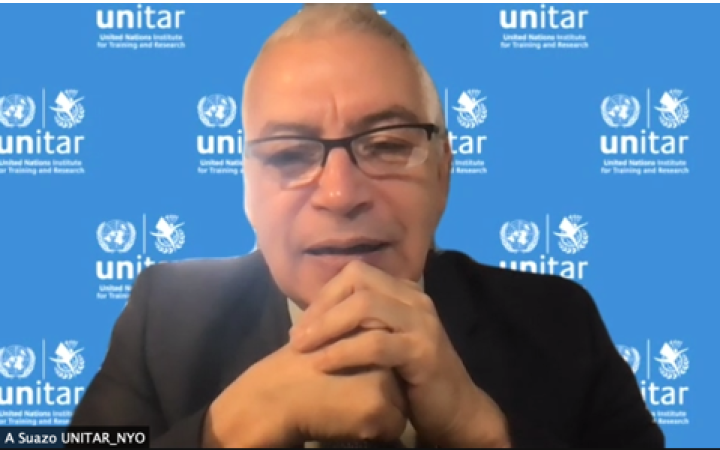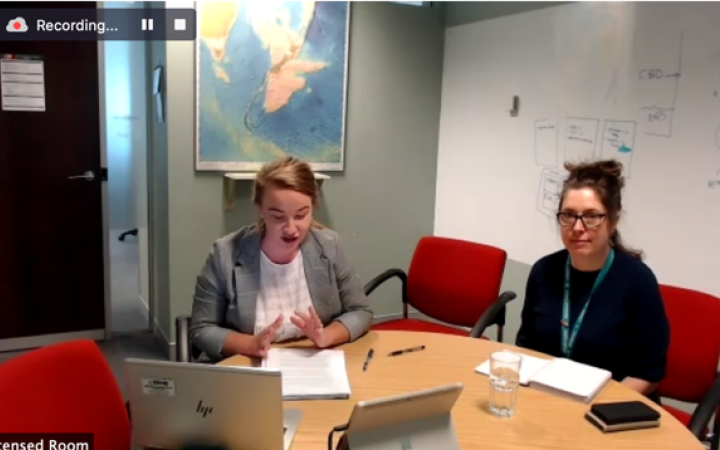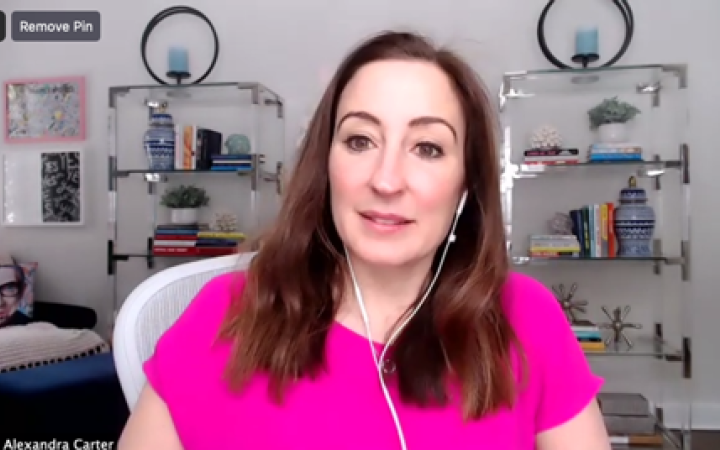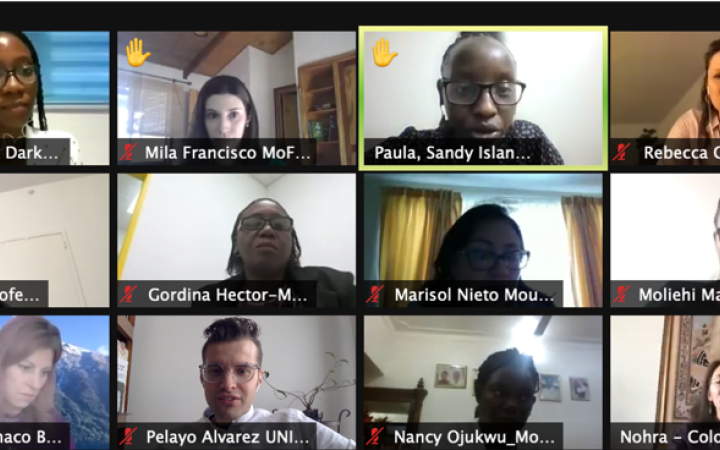2 March 2020, New York, USA - UNITAR office in New York organized a 2 day training series on Negotiations during the COVID-19 Era for the fellows of the Women and International Security in Cyberspace Fellowship. The training was sponsored by the office of the Prime Minister and Cabinet of New Zealand.
This training is a follow-up series of the fellowship first organized in February 2020 sponsored by the Ministry of Foreign Affairs of Australia. The attendees were a total of 38 selected female negotiators, focused on Cyberspace issues, selected from countries around the world. In order to take into account the time difference from the fellows locations, UNITAR developed the sessions organized in two different groups: morning and afternoon, so all fellows could attend the sessions from their countries. This curriculum was prepared and implemented taking into account the feedback from the participants and the organizers from the February edition, as well as the current COVID-19 situation and the current practices on United Nations Negotiations.
The first day was inaugurated by Mr. Marco A. Suazo, head of UNITAR office in New York who welcomed the participants, and discussed on how the pandemic has changed the negotiations within the international environment. After him, the representative of New Zealand Sarah Macindoe, and Hannah Frost (respectively in the morning and afternoon sessions) thanked UNITAR for organizing the workshop and encouraged the fellows to take advantage of the training.
Mr. Suazo introduced Prof. Alexandra Carter, Director of Mediation at Columbia Law School and her facilitating team. The presentation was focused on self-advocacy, how to claim credit and the importance of speaking up, specifically during virtual negotiations. The facilitators remarked the importance of understanding issues of stereotypes, prejudice, and assumptions in order to better support and amplify the voices of women of color while negotiating.
During the session useful techniques and tools for negotiations where shared, like for example the I/WE formula or replacing "I am sorry" for "thank you" as a way to become a more assertive negotiator. Studies show that women more likely to be perceived negatively while negotiating assertively for themselves, but they are perceived well when negotiating assertively for their organization.
After a brainstorming session exploring the main challenges of going virtual (technical issues, work/family balance, time zones etc.) the participants were divided in breakout rooms to practice the tools they had gone through with a hypothetical scenario to negotiate.
The training concluded with a debrief and Q&A with Professor Carter who addressed the issues brought by the fellows in order to better move forward with their negotiation endeavors.>
Day 2 of the training was opened by Mr. Marco A Suazo who provided brief introductory remarks and thanked participants for their attendance on the second day. He then introduced this session’s facilitators, Dr. Jimena Leiva-Roesch, Fellow at the International Peace Institute, Dr. Ye Min Wu Deputy Permanent Representative for the WTO and Dr. Rebecca Webber Gaudiosi, former US Diplomat. Dr. Leiva-Roesch and Dr. Webber Gaudiosi provided their own introductory remarks, explaining that, in the COVID-era, negotiations are now virtual and require adaptation to overcome unique challenges. They then overviewed the trilateral negotiation simulation that the participants would be taking part in.
The participants were divided into three separate groups, each representing a fictitious country with specific goals for negotiations. In virtual breakout rooms, participants representing the same countries first discussed negotiation strategies in pairs before coming together in larger groups for the trilateral negotiation simulation. Upon return to the main session, Dr. Leiva-Roesch and Dr. Webber Gaudiosi asked the participants to share their negotiation experience and what the final outcomes had been. This facilitated an in-depth discussion about how the parties came to an agreement, as well as the nuance in negotiation.
Following a brief break, the participants came back to continue the discussion and specifically focus on strategies for negotiation and compromise. Dr. Leiva-Roesch and Dr. Webber Gaudiosi explained best practices and how to overcome some of the challenges to negotiations presented by COVID. At the conclusion of the session, they thanked the participants for their enthusiastic participation and invited Mr. Marco Suazo to provide concluding remarks. Mr. Suazo stressed the importance of continual training in negotiations as interests are always different. He congratulated Dr. Ye Min Wu, Dr. Leiva-Roesch and Dr. Webber Gaudiosi for the successful workshop and again thanked participants for their participation.
The countries that participated included Antigua and Barbuda, Argentina, Botswana, Cameroon, Chile, Colombia, Ecuador, Ghana, Indonesia(located in NY), Kenya, Mauritius, South Africa, South Sudan, Sri Lanka, Uganda, Malaysia, Thailand, Botswana, Colombia, Fiji, Laos, Malawi, Malaysia, Mexico, Papua New Guinea, Philippines, Samoa, Vanuatu and Indonesia.





